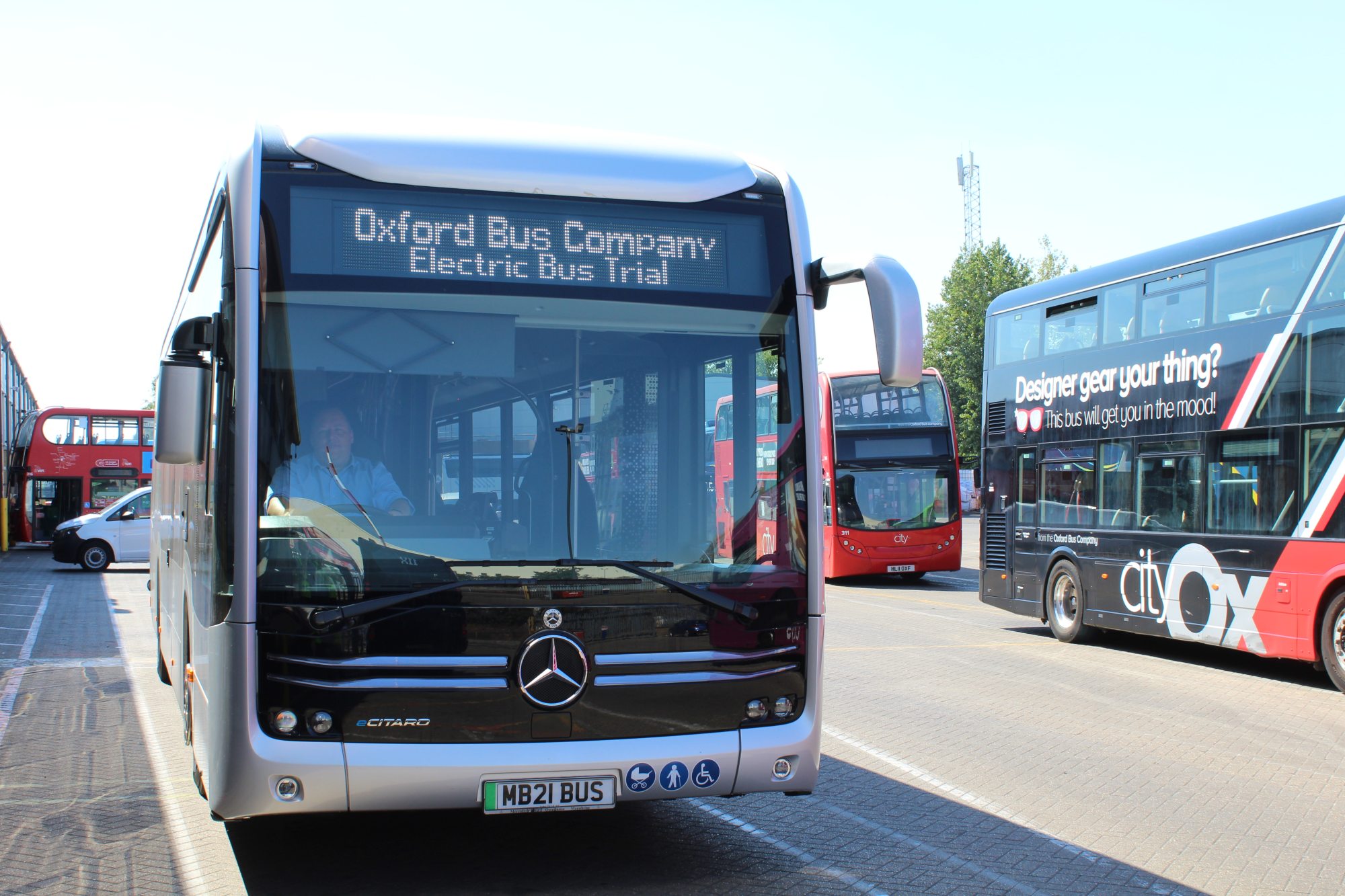Britain’s electric bus revolution needs supercharging post-Uxbridge
Martin Dean, Managing Director, Regional Bus
| Go-Ahead
As controversy rages over ‘anti-car’ green policies, Go-Ahead’s Martin Dean says that speeding up investment in zero-emission buses is an environmental measure that can win over motorists.
At a bus depot in Cowley, just opposite Oxford’s Mini car plant, mechanical diggers are churning up concrete to lay high voltage electric cables. More than 100 charging points are being installed for zero-emission electric buses.
Oxford is poised to be one of Britain’s pioneering electric bus cities with 156 vehicles on order, to be operated by The Go-Ahead Group and Stagecoach. There’s a crackling spark of energy in this university city when it comes to Britain’s journey towards zero emission transport.
Tackling transport is vital for Britain to meet its net zero legal obligations by 2050. Transport accounts for 24% of Britain’s greenhouse gas emissions, more than any other sector of activity. But as we’ve seen since the Uxbridge by-election, policies that punish motorists in the pocket are tricky when so many people are experiencing a cost of living squeeze.
So we need some quick wins. And if the objective is to find ‘carrot’ rather than ‘stick’ initiatives to nudge the public towards green transport, then zero-emission buses are top of the list. What voter could possibly disagree with turning buses green?
A bus can take 75 cars off the road – and if that bus is zero emission, then the carbon reduction dividend is enormous. London is already well advanced on its bus decarbonisation journey, with nearly 1,000 all-electric or hydrogen buses on the road, and a target of achieving a fully zero emission fleet by 2034.
Outside the capital, though Britain is at an earlier stage – so there’s an opportunity to supercharge progress, and to really make a visible difference.
The Government has so invested £270 million in helping bus operators, and local authorities, to decarbonise fleets through its Zero Emission Bus Regional Areas (ZEBRA) scheme. The money will fund new buses in 17 areas – including Manchester, Kent, Norfolk, North Yorkshire and Blackpool.
But that Zebra money has dwindled of late and there’s much more to be done – particularly if each pound put in by the Government is accompanied by investment by bus companies and local authorities.
Why can’t the private sector do this itself? Put simply – because the business case for this transition is a challenge. The upfront cost of an electric bus is 80% higher than the cost of a diesel bus. Because of range limitations, you need more electric buses than diesel to cover the equivalent distance. And on top of that, it’s very expensive to revamp and electrify bus depots.

The industry is working hard to improve the commercial case: a Zero Emission Centre of Excellence established by Go-Ahead is analysing batteries, fleets, scheduling and maintenance to make running a zero emission bus as efficient as possible.
And we are experimenting with different ideas – for example, in London, pantographs are being installed for electric buses to pass underneath, getting a quick battery top-up. And in the Crawley area, hydrogen buses are being piloted on intensive, 24-hour routes around Gatwick Airport where vehicles clock up 300 miles in a day.
Oxford is a great example of partnership funding: the DfT’s ZEBRA scheme is putting in £82.5 million, Oxfordshire County Council is contributing £32.8 million and private operators – Go-Ahead and Stagecoach - are investing £43.7 million to go electric. The deal is contingent on traffic priority measures being put in place to speed up bus journeys by 10% - a win-win for passengers all round.
The ingenuity, and desire, is there to make decarbonisation happen – providing the Government invests some seed capital. Evidence suggests that the public will respond: 55% of people are likely to travel by bus more often if buses are powered by zero-emission electric or hydrogen batteries, according to a Savanta opinion poll last year.
Two of the major manufacturers of electric buses, Wrightbus and Alexander Dennis, are in the UK – which means many of these new vehicles can be built on home soil. And it’s important to maintain momentum: in the Netherlands, for example, 27% of buses are already electric, compare to under 10% in Britain.
By this time next year, most of Oxford’s buses will be electric. We need to work towards electric bus cities becoming the norm. A fresh round of ZEBRA funding would be a great start – it would create a tangible return in jobs and productivity. Let’s work together: green buses are a quick, popular and cost effective policy route towards a sustainable future.
Martin Dean is Managing Director, Regional Bus, at The Go-Ahead Group
